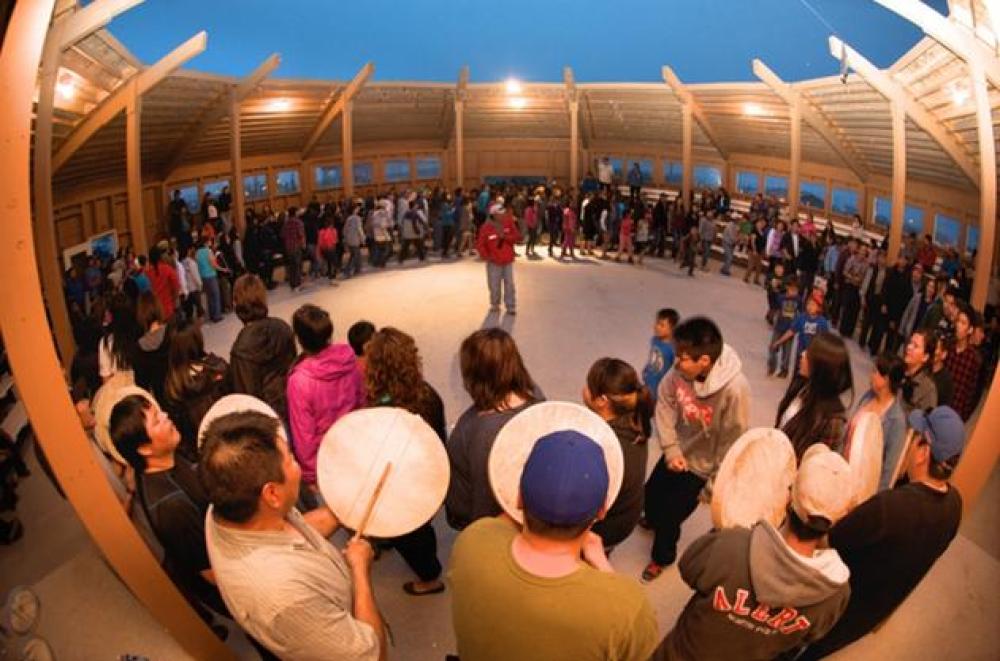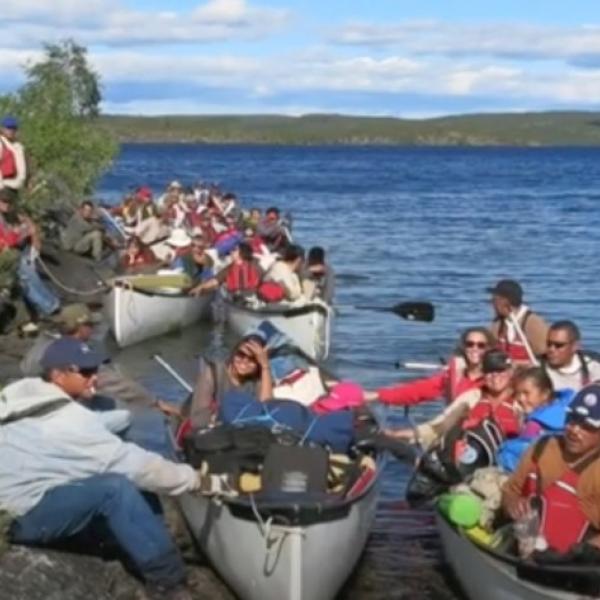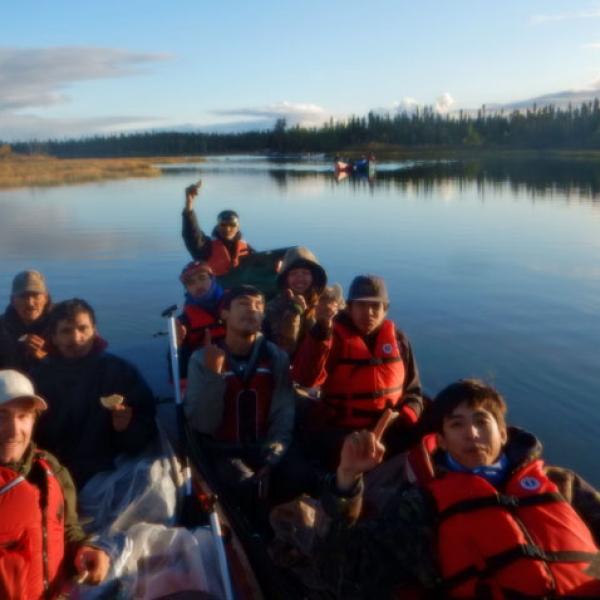MEDIA RELEASE
Tłı̨chǫ Government Secures Court Injunction Against Canada’s Change to the Mackenzie Valley Resource Management Act
Wek’èezhìi Land and Water Board and the Land and Water Co-Management Regime in the Northwest Territories Protected
March 1, 2015
For Immediate Release
BEHCHOKǫ̀, NT – The NWT Supreme Court has granted the Tłı̨chǫ Government an injunction stopping Canada from implementing its amendments to the Mackenzie Valley Resource Management Act (“MVRMA”). The MVRMA amendments sought to dismantle the successful and long-standing system of regional land and water boards throughout the Mackenzie Valley.
This unique co-management system in the NWT flows from the modern day land claims agreements that were entered into with the Tłı̨chǫ Government and other Aboriginal groups. The injunction protects the regional board in the Tłı̨chǫ management area―the Wek’èezhìi Land and Water Board―while the Tłı̨chǫ Government’s lawsuit against Canada’s changes to the MVRMA proceeds. The injunction also preserves the Gwich’in and Sahtu regional boards.
“This decision is a huge win for the Tłı̨chǫ and for all of the Aboriginal peoples in the NWT. The court recognized the potentially disastrous effects of Canada’s actions, and exercised its jurisdiction to protect our constitutionally-protected rights as set out in the Tłı̨chǫ Agreement while our lawsuit proceeds,” said Tłı̨chǫ Grand Chief Eddie Erasmus.
Grand Chief Eddie Erasmus added, “The court’s statement is clear: our modern day treaty and the promises within it cannot simply be ignored by Canada. This injunction ensures Tłı̨chǫ will be able to continue to protect Wek’èezhìi and play our constitutionally-protected role in water and land management in our territory. We could not be happier with the ruling.”
In her reasons for judgment, Justice Karan Shaner held that Tłı̨chǫ Government’s lawsuit raises “a serious constitutional issue to be tried” and that Canada’s claim that its actions are constitutional “is far from a foregone conclusion.” The court explained that, “the Tłı̨chǫ Government will suffer irreparable harm should injunctive relief not be granted” and that the Tłı̨chǫ lawsuit “raised a reasonable possibility that Canada has overstepped the bounds of what it is permitted to do under the Tłı̨chǫ Agreement”. Justice Shaner concluded by finding that granting the injunction sought by the Tłı̨chǫ Government was “most certainly in the public interest.” A copy of the court’s decision is available at www.tlicho.ca.
This injunction was a critical step in the lawsuit that was filed by the Tłı̨chǫ Government in May 2014 following the passage of Canada’s changes to the MVRMA. If implemented, Canada’s MVRMA changes would almost eliminate the Tłı̨chǫ role in the protection and management of Wek’èezhìi, which lies in the heart of Tłı̨chǫ traditional territory and is identified as the Tłı̨chǫ management area under the Tłı̨chǫ Agreement. The lawsuit seeks to stop Canada’s creation of a “superboard” and elimination the Wek’èezhìi Land and Water Board.
Tłı̨chǫ Grand Chief Erasmus concluded, “We are optimistic that Canada will read this decision and recognize that we must begin to work together to find solutions that work for all treaty partners. The days of unilateral action by Ottawa are over. Our door is always open to respectful negotiations and finding mutually beneficial solutions.”
For all interview and media requests or for more information, please contact:
Laura Duncan
Tłı̨chǫ Government
(867) 766 4003
| Download Media Release (PDF) |
| Download NWT Supreme Court Judgment on the Interlocutory Injunction (PDF) |
----------
Related News:
- The Tlicho Government has won an injunction to stop — at least temporarily — the federal government's plan to do away with the Wek'eezhii Land and Water Board. Read more on CBC North.
-
The decision by the Supreme Court of the Northwest Territories says courts can prevent the federal Parliament from unilaterally altering deals with Canada’s aboriginal people that are protected by Canada’s Constitution. Read more on The Globe & Mail.
-
Canada appeals decision delaying N.W.T. land and water superboard. Read more on CBC North.







